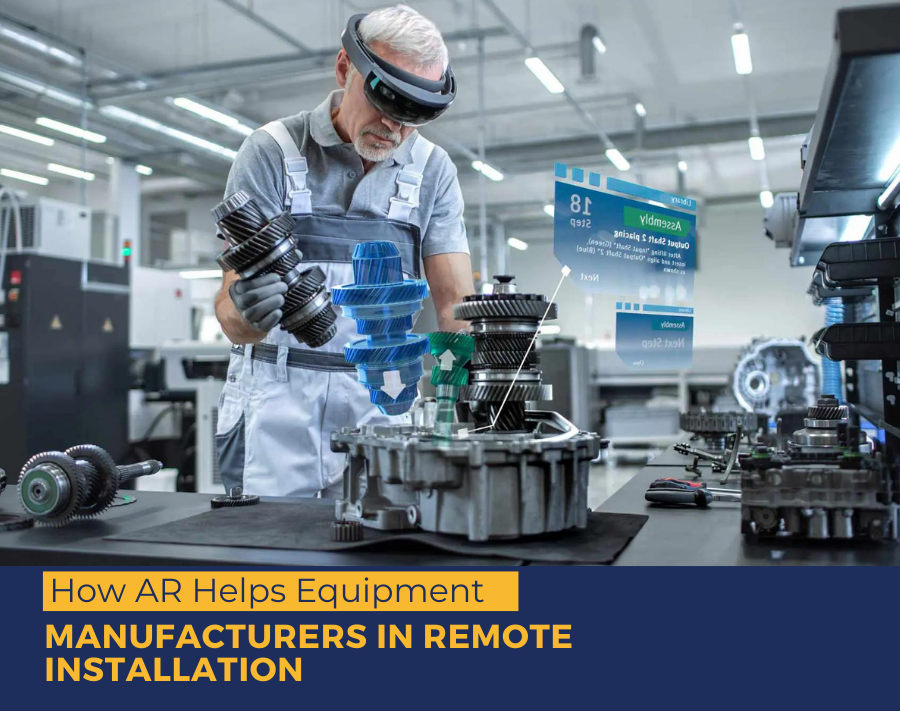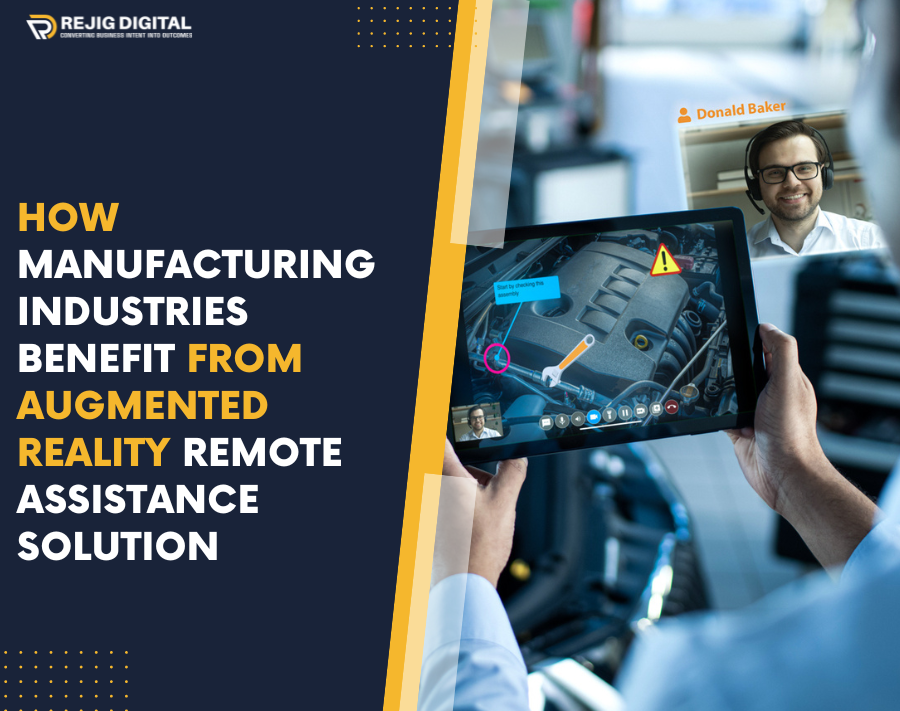When it comes to augmented reality’s involvement in manufacturing, it’s safe to say that it may have a significant influence, particularly when anything goes wrong during the manufacturing process. The manufacturing business is tolling these days, and many companies are betting on diversification and constructing operations in faraway locations. The industrial business will be greatly impacted by AR remote support.
An augmented reality remote help solution can operate as a link between specialists and field employees. AR technology helps improve operations by minimizing downtime and spot problems early.
Remote assistance & AR help firms maintain operations
The following five points demonstrate how remote aid and augmented reality may help firms maintain procedures while also highlighting the long-term benefits of this technology.
1. A shift in circumstance necessitates a shift in perspective.
Equipment manufacturers create, sell, and maintain specialized equipment for industries that require precise temperature and humidity control. The company’s business strategy focuses mainly on conducting on-site inspections with five production units, including visits before the initial installation of equipment.
To lessen dependency on on-site visits, the firm turned to remote software solutions to provide functionality that allows employees to interact with clients remotely and enhance productivity by performing remote resolution and diagnosis—an essential step in the company’s road to servitization.
2. Remotely deliver the same high-quality service.
The company’s objectives were to give remote help to field personnel and support a new manufacturing production line without having to deploy specialists to the location. The organization is achieving these objectives with the help of IFS Remote Assistance, a fused reality solution that allows staff to be anywhere, at any time.
Experts are directing the inauguration of the new manufacturing line utilizing smart glasses and field technicians and third-line support using the solution on their mobile devices. It enables remote customer assistance and resolution and remote diagnostics to improve first-time repair rates, resource utilization, and staff training and knowledge transfer.
3. Rapidly implement worldwide change.
The remote help service was up and running in barely two weeks, with many users worldwide. Equipment technicians may now use merged reality environments’ capabilities and hands-free collaboration options.
Users may cooperate and engage in real-time while tolerating, freezing pictures, making hand gestures, and even adding actual items to the merged reality environment—whether it’s a technician to third-line assistance, a technician to a client, or an expert to a manufacturing plant.
4. Change today to increase future business.
Manufacturers explain how, in this exceptional situation, remote help and augmented reality may enhance internal and end-customer operations. However, remote use has long-term benefits that might lead to considerable Remote Assistance Platform development after the epidemic. Remote support is an essential instrument for serviced operations, a profitable business model both today and in the future.
5. Turn a temporary agreement into a chance for your company to expand.
Manufacturers’ ability to adapt to unusual conditions highlights how remote support technology can assure company continuity during a worldwide pandemic and the enormous potential to further exploit the solution after things have returned to normal. The advantages of utilizing this technology to update processes are apparent.
The ability to execute maintenance checks remotely, enhance first-time repair rates through remote diagnostics, minimize the number of personnel dispatched to locations, and give remote assistance to production plants contribute to increased efficiency.
Also Read: How AR Remote Assistance Solution Benefits Manufacturing Industry
Major Obstacles and The Remedies for Remote Assistance
It isn’t an easy task for the firms to provide AR equipment in Remote locations. The following are some common challenges faced:
- Experts typically visit the production site and address the problem at their leisure.
- Typically, a few field employees interact with the expert on-site to service or repair the plant’s equipment.
- Workers communicate little or no information about the machine’s problem and how specialists have fixed it.
- If the same problem arises again in the traditional technique of repairing or maintaining the equipment, there is no way to refer to the prior Because of their lack of understanding. Field personnel have no notion of how to handle the problem.
- Experts can take a long time to visit a remote location, causing the manufacturing business to experience extended downtime and a major reduction in staff productivity.
Remedies
- The built-in foundation of the augmented reality remote helps software store important information from past maintenance and repair sessions.
- Experts can preserve essential information in archives in various forms such as PDF, audio files, etc.
- When problems arise, remote workers may access data immediately.
Now according to the remedies, the consequences derived are:
The remote workforce has access to all data linked to past incidents, allowing them to tackle similar situations quickly. This function eliminates the need for specialists to talk about the same topic.
The Future of Augmented reality
Remote Assistance will never be the same again, thanks to the numerous – and growing – use-cases and possibilities of AR technology. Researchers project that the worldwide AR industry would have surpassed $48.6 billion in a few years.
This technology is being used for remote help across key sectors in a market with rising acceptance, capabilities, and applications. Augmented reality remote assistance platforms are evolving to directly impact important KPIs, enhance productivity, efficiency, and customer happiness, and help businesses maintain and expand.
Statistical data
The market for smartphone augmented reality would increase by 25 times to Rs 1.2 lakh crore. According to the research, the number of unique monthly active users (MAUs) for mobile AR would increase from 34 million in 2016 to over 190 million by 2022.
According to industry analysts, the mobile AR market will continue to grow as AR becomes a more embedded mobile capability through software development kits (SDKs) and other tactics, and AR will be integrated into social networking platforms, e-commerce apps, maps, and business applications.
Conclusion
All workers must work diligently and communicate effectively, from the assembly line to on-site assistance, to meet organizational goals. It is critical to incorporate new tools and technologies to stay relevant and successful. For example, augmented reality remote help is an innovative technique to increase corporate operations quality.
Rejig Digital makes it easy for manufacturers to provide installation services to various businesses. Please contact us; our staff is eager to demonstrate how Rejig Digital’s remote visual assistance software may benefit your company’s unique business requirements.





